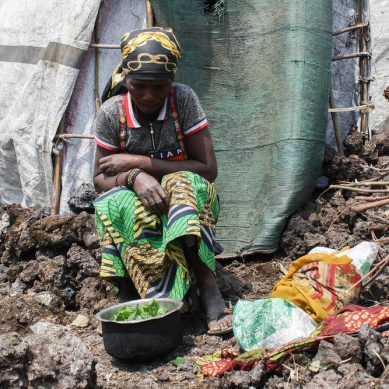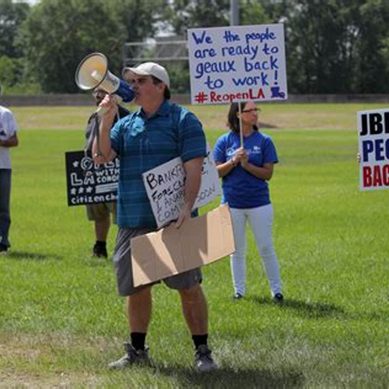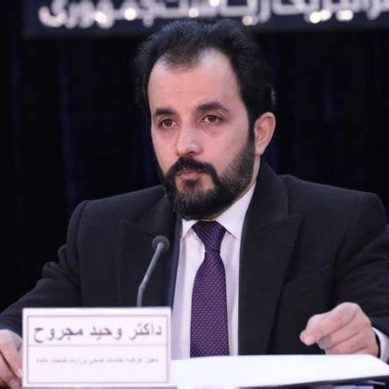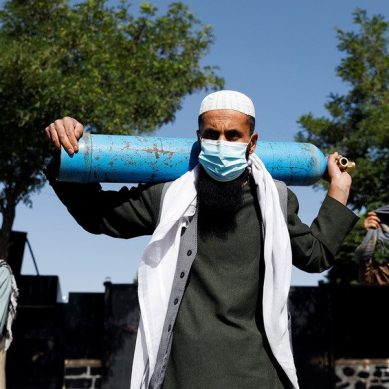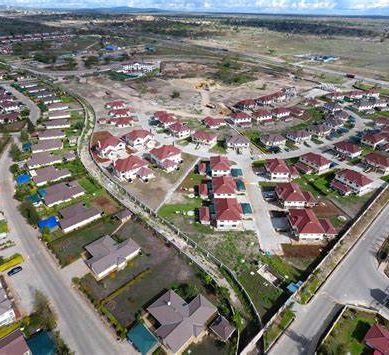Plight of Congo volcano IDPs: Banished by Mt Nyiragongo eruption, forsaken by government
Editor’s note: This is the first of two stories on the aftermath of the May volcanic eruption in eastern Democratic Republic of Congo. The New Humanitarian spent three weeks interviewing displaced people, aid workers, and employees at a local observatory tasked with monitoring the volatile Mount Nyiragongo. After one of...
Opening economies: ‘Zero Covid’ countries unsure if they can keep the virus at bay if they reopen
Some of the countries that have been most successful at keeping Covid-19 at bay are now seeking ways to gingerly lower the barriers that protect them while minimising the risk that the disease will become endemic. China, Australia, New Zealand, Singapore and Taiwan all closed their borders last year and...
As cows learn and get used to using toilets, some 670m humans still practise open defecation
A herd of cows has been “potty-trained” in an experiment that scientists say could pave the way for more environmentally friendly farms. Waste from cattle farms often contaminates soil and waterways and contributes to greenhouse gas emissions and the acidification of soil. For this reason, toilet-training cattle has long been...
Healthcare, aid and the Taliban: Fix crumbling health system or risk greater humanitarian catastrophe
The New Humanitarian Interview with Afghanistan’s acting health minister, Dr Wahid Majrooh, on situation after the Taliban takeover in Kabul. International aid donors must find a way to fund Afghanistan’s crumbling health system, or risk an even greater humanitarian catastrophe. This is the warning from the country’s acting health minister,...
Afghan healthcare on life support as the system that proved resilient during 3 waves of Covid crumbles
International aid suspensions could shutter most of Afghanistan’s public health facilities, essentially leaving the country without a working healthcare system, officials and aid groups say. Some 2,000 donor-funded clinics and other health facilities could shut their doors within days, stripping access to primary or secondary healthcare from millions of people....
Intriguing: Chinese scientist who discovered Covid causing virus in Wuhan caves studied in France
Founded in 1956 as a branch of the Chinese Academy of Sciences (CAS), the Wuhan Institute of Virology (WIV) initially focused on agricultural pests, a serious concern during the famine that began in 1959. During the Cultural Revolution from 1966 to 1976, its research was disrupted, as 229 CAS scientists...
Wuhan’s virus: Did the French have a hand in the origin and spread of coronavirus?
One chilly morning in February 2017, a tall Chinese scientist in his 50s named Yuan Zhiming showed Bernard Cazeneuve, then the French prime minister, around Wuhan’s new high-security pathogen laboratory. Built with French engineering, it was China’s first P4 laboratory, one of several dozen in the world with that highest...
Nairobi’s $45 billion new Athi River Smart Green City to house two million people upon completion
Nairobi’s dispersion to the outlying areas took another turn towards the decongestion and modernisation last month following the approval of development of a smart city project in Athi River, some 30 kilometres southeast of the Kenyan capital’s central business district. The project will cost a total of Ksh5 trillion ($45...
Flying cars deal between Kenya Airways, Brazil’s aircraft maker Embraer to ease movement in Nairobi
Kenyan capital Nairobi expects to experience ease in commuter movement in the coming three years following the signing of an agreement between national carrier Kenya Airways and Brazilian aircraft manufacturer Embraer to supply flying taxis. As business hub if the region, Nairobi which also hosts headquarters a number of international,...
Ex-Boko Haram fighters surrender: Nigeria torn between pardoning killers or bringing them to justice
A surge of surrenders by Boko Haram jihadists in north-eastern Nigeria has turned the spotlight onto how the government deals with fighters who claim to have repented and are now – controversially – looking to be reintegrated into a society scarred by 12 years of war. The New Humanitarian visited...




